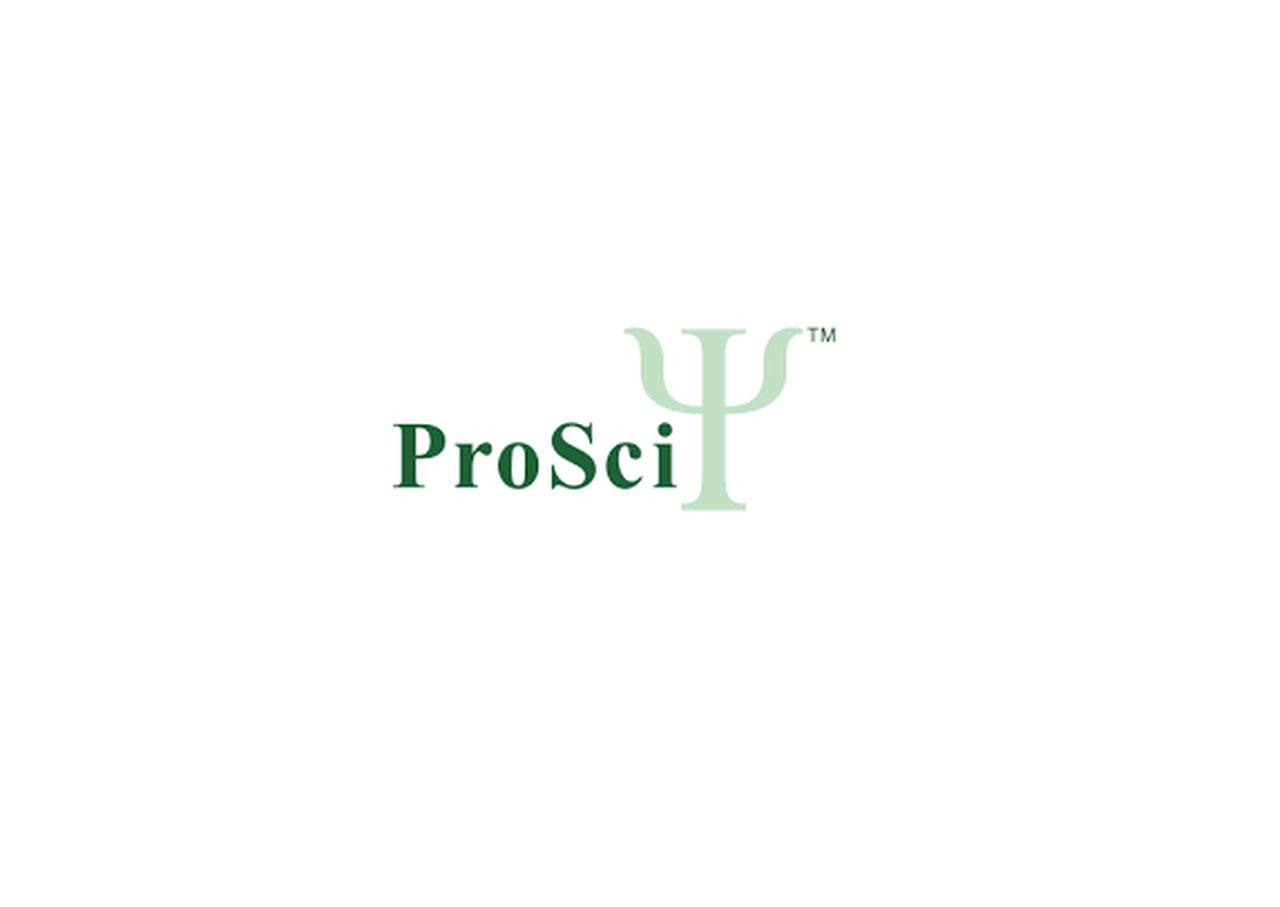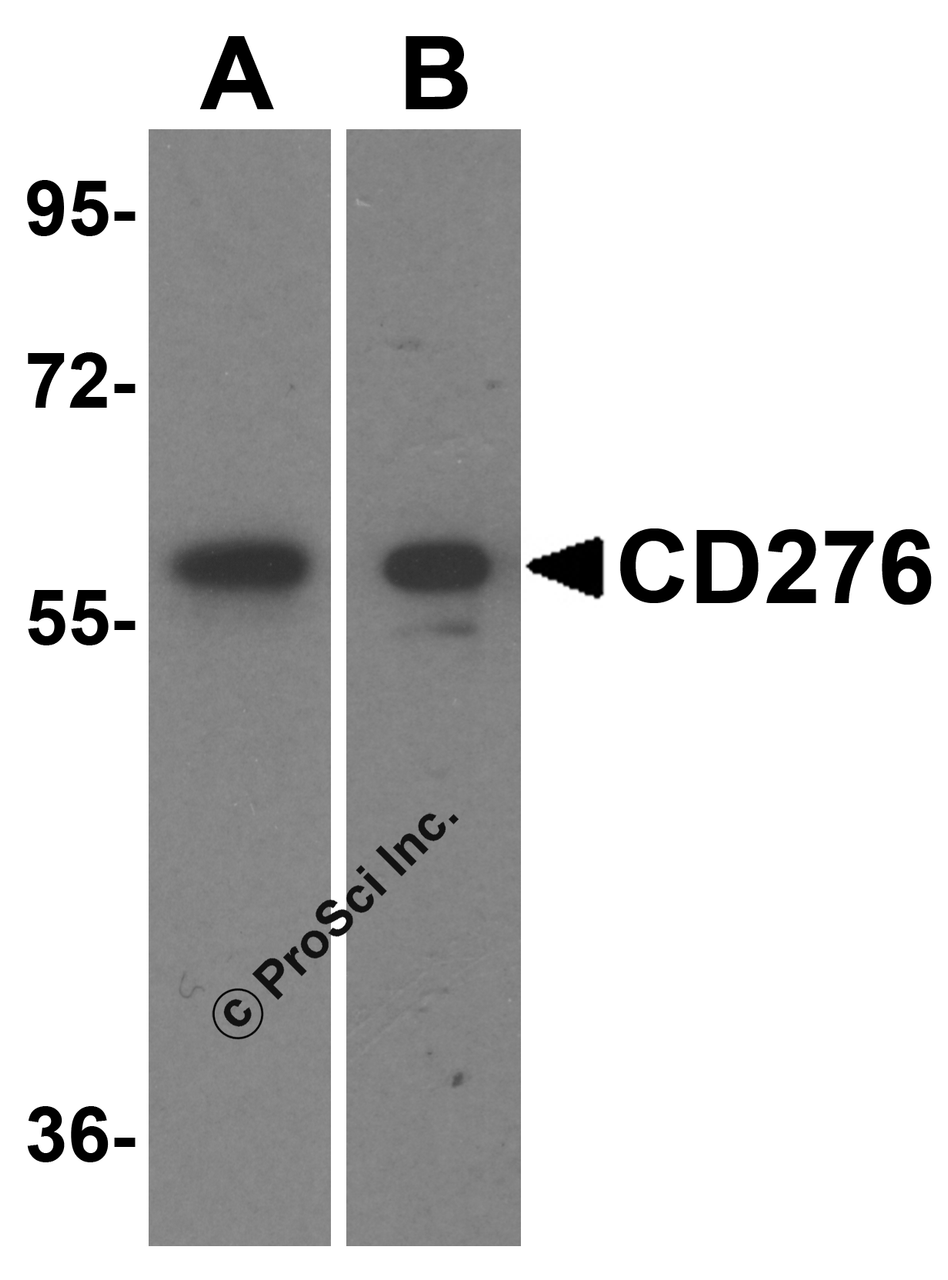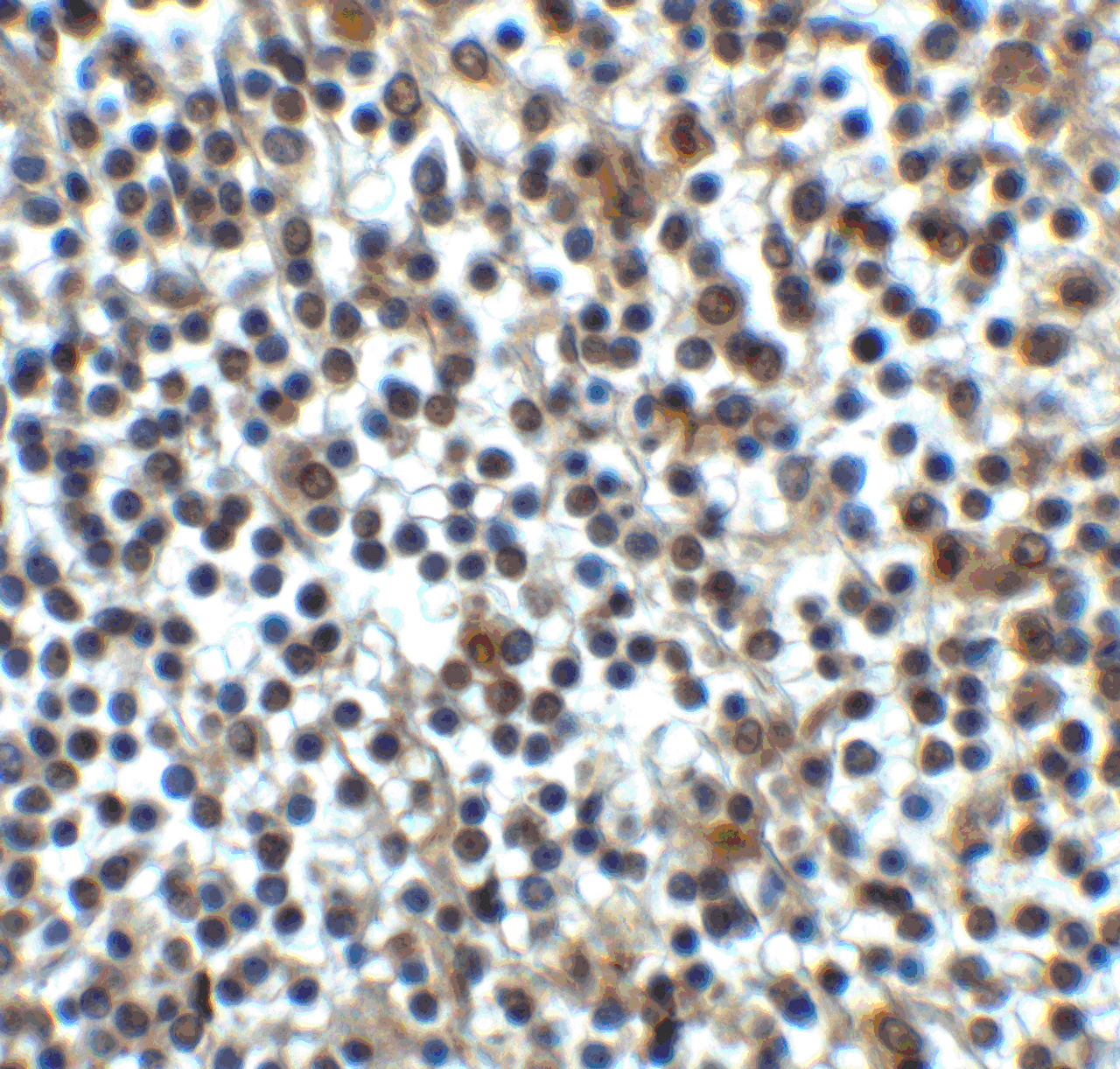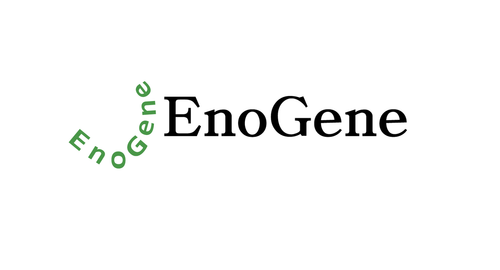Product Description
CD276 Antibody | 8689 | ProSci
Host: Rabbit
Reactivity: Human, Mouse, Rat
Homology: N/A
Immunogen: CD276 antibody was raised against a peptide corresponding to 19 amino acids near the carboxy terminus of CD276.
The immunogen is located within amino acids 484 - 534 of CD276.
Research Area: Cell Cycle, Cancer, Immunology
Tested Application: E, WB, IHC-P, IF
Application: CD276 antibody can be used for Western blot at 0.5 - 1 μg/mL. Antibody can also be used for Immunohistochemistry at 2 μg/mL. For Immunoflorescence start at 20 μg/mL.
Antibody validated: Western Blot in human and mouse samples; Immunohistochemistry in human samples and Immunofluorescence in human samples. All other applications and species not yet tested.
Specificiy: At least three antibodies are known to exist; this antibody will detect all three isoforms.
Positive Control 1: Cat. No. 1306 - Human Spleen Tissue Lysate
Positive Control 2: Cat. No. 1406 - Mouse Spleen Tissue Lysate
Positive Control 3: N/A
Positive Control 4: N/A
Positive Control 5: N/A
Positive Control 6: N/A
Molecular Weight: Predicted: 35, 43, 57 kDa
Observed: 59 kDa
Validation: N/A
Isoform: N/A
Purification: CD276 Antibody is affinity chromatography purified via peptide column.
Clonality: Polyclonal
Clone: N/A
Isotype: IgG
Conjugate: Unconjugated
Physical State: Liquid
Buffer: CD276 Antibody is supplied in PBS containing 0.02% sodium azide.
Concentration: 1 mg/mL
Storage Condition: CD276 antibody can be stored at 4˚C for three months and -20˚C, stable for up to one year. As with all antibodies care should be taken to avoid repeated freeze thaw cycles. Antibodies should not be exposed to prolonged high temperatures.
Alternate Name: CD276 Antibody: CD276 molecule, B7H3, B7-H3, B7RP-2, 4Ig-B7-H3
User Note: Optimal dilutions for each application to be determined by the researcher.
BACKGROUND: CD276, also known as B7-H3, was initially identified as a member of the B7 family of proteins through its homology with previously identified B7 molecules (1) . CD276 mRNA is widely expressed, but its protein expression is usually rather low (2) . CD276 has been shown to play a role in both the costimulation as well as the coinhibition of T cell response (3) . In a similar fashion, CD276 plays a critical role in the control of antitumor immune responses in some cases, while in others appears to mediate antitumor immunity (4) . It thus joins other immune checkpoint proteins as a possible therapeutic target for at least a subset of cancers.
 Euro
Euro
 USD
USD
 British Pound
British Pound
 NULL
NULL












